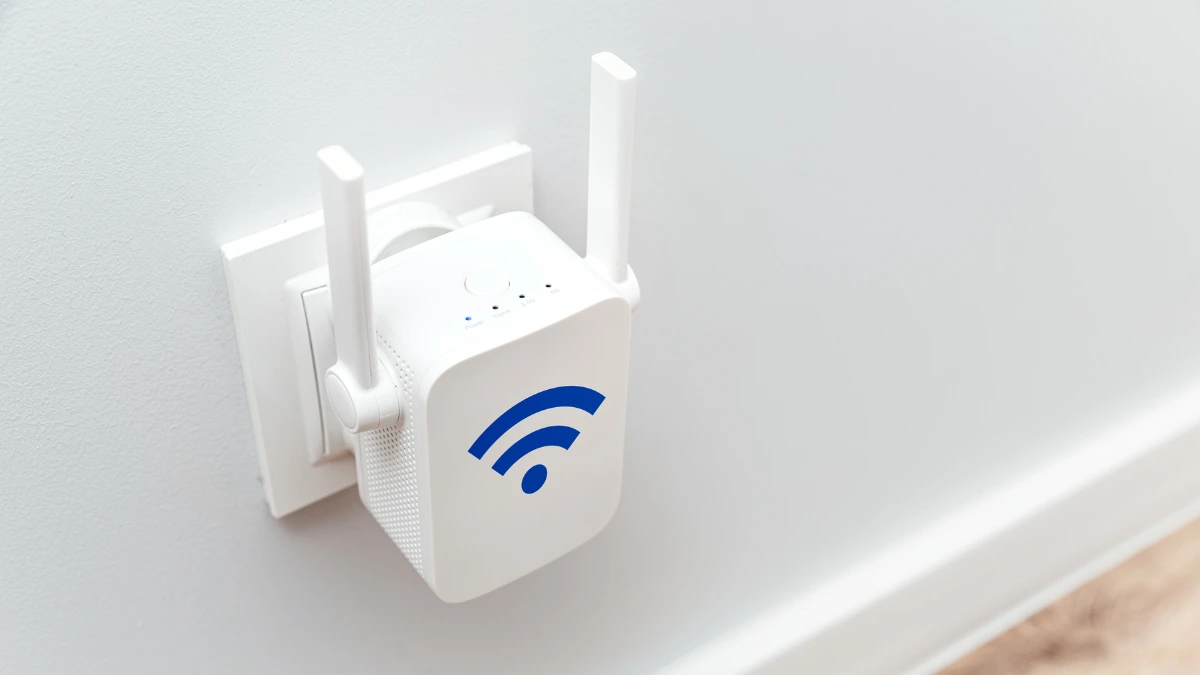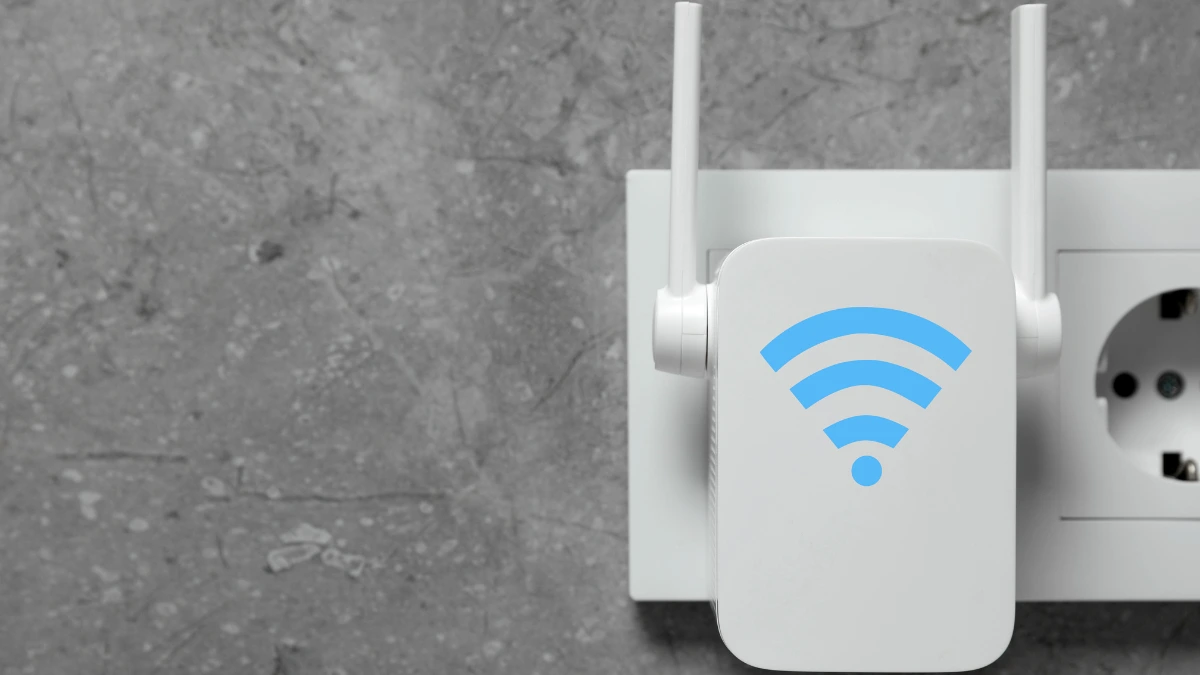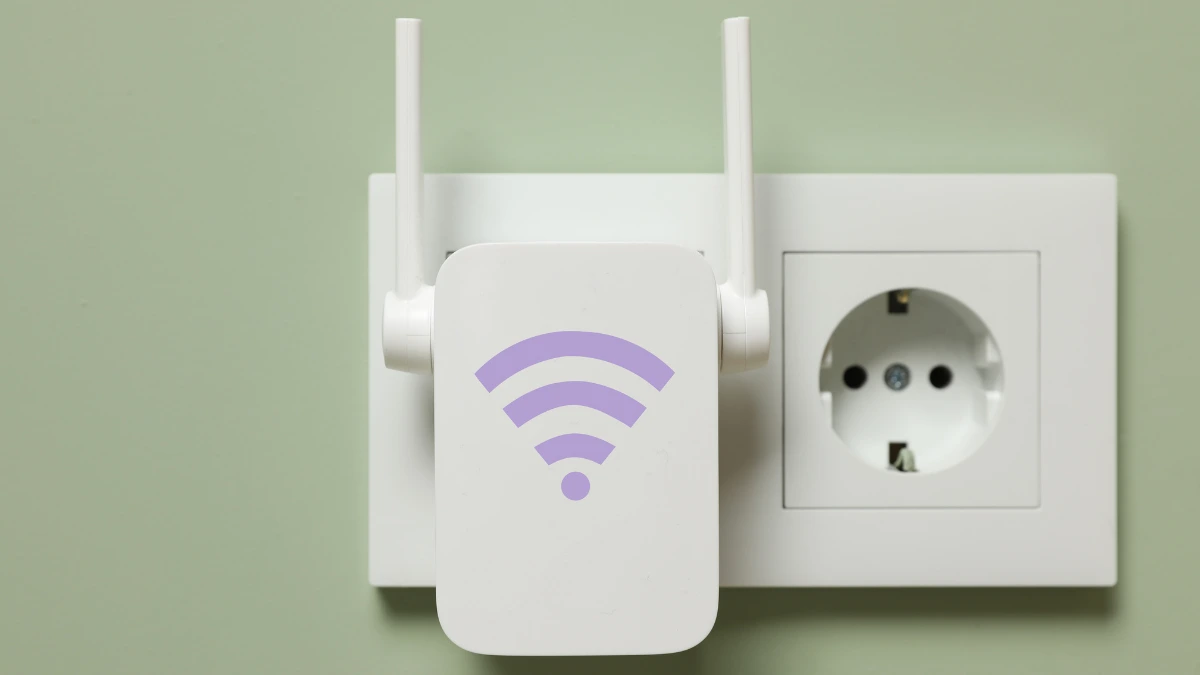Does your home or office have areas that are not covered by the WiFi signal? With its ability to extend and strengthen the signal, a WiFi repeater can be the solution to your problem.
A WiFi repeater can receive, strengthen, and retransmit the WiFi signal from the main router so that the WiFi signal remains strong and stable in areas that were previously not covered by the internet.
This article will explain more about WiFi repeaters, including their definition, how they work, their functions, benefits, and regulations for their use in Indonesia.
What is a WiFi Repeater?

As the name suggests, a WiFi repeater is an electronic device used to extend the range of a WiFi signal. In other words, a repeater acts as an amplifier and rebroadcaster of WiFi signals, enabling them to reach areas that were previously difficult to reach with the main signal.
A WiFi repeater amplifies and rebroadcasts WiFi signals by receiving signals from the main router and rebroadcasting them to a wider area with greater strength.
How Does a WiFi Repeater Work?
A WiFi repeater works by receiving signals from the main router and rebroadcasting them to a wider area. Here is how it works in detail:
- Receiving signals: The router captures WiFi signals transmitted by the router.
- Amplifying signals: The received signals are amplified by regeneration before being retransmitted.
- Retransmitting signals: The amplified signals are then retransmitted, either creating a new WiFi network or simply copying the name of the main network.
In this way, the repeater can extend the range and stability of the WiFi connection to address issues such as “dead zones” or areas with weak WiFi signals in homes or offices.
The Functions of a WiFi Repeater

The main function of WiFi repeaters is to expand coverage and strengthen the WiFi signal. The following are its functions:
- Expanding coverage: Areas that were previously out of reach of the WiFi signal will now be covered by the expanded signal.
- Strengthening the signal: In weak areas, the router will strengthen the WiFi signal to improve and stabilize it.
- Improving data transfer efficiency: A more stable signal will reduce lag and disconnections, making data transfer more efficient.
The Benefits of a WiFi Repeater

The WiFi repeaters provide many benefits, especially in accessing the internet in remote areas, reducing cable usage, and providing a solution for dead zones. Here are some of the main benefits:
1. Accessing the internet in remote areas
One of the benefits of a WiFi repeater is that it allows you to access the internet in areas that were previously out of reach. With its ability to extend the WiFi signal from the main router, you will be able to access the internet in areas that are difficult to reach, such as rooms on the upper floor, corners of rooms, or areas at the back of the house.
2. Strong and stable WiFi signal
A repeater can strengthen weak WiFi signals in specific areas. This allows you to enjoy a strong and stable WiFi signal in those areas. Don’t forget to place the repeater in a strategic location.
3. Reducing cable usage
Reducing cable usage is another benefit of using a WiFi repeater. Instead of installing additional network cables to expand the WiFi network, a repeater can be a more practical and economical solution.
4. Solution for dead zones
Another benefit of the repeater is as a solution for dead zones. With its ability to capture signals from the main router and redistribute them to the area, there will be no more dead zones in your home or office.
WiFi Repeater Regulation in Indonesia

The WiFi repeater uses communication technologies such as those that operate within a specific frequency spectrum. In Indonesia, any WiFi-based wireless device is required to have a DJID (Directorate General of Digital Infrastructure) under the Ministry of Communication and Digital (KOMDIGI).
WiFi repeater type approval and regulation will be based on KEPMEN No. 12 Tahun 2025, which requires all radio frequency-based devices to meet specific technical standards before being sold in the country.
The DJID certification ensures that the product meets government safety and quality regulations and does not interfere with other communication devices. The certification process involves technical testing, such as frequency adjustments, safety checks, and compatibility with the surrounding environment.
Once the tests are completed, products that pass are listed in a Test Result Report, which confirms that the product is safe and ready for sale in Indonesia. This report reassures customers that the product meets technical standards and is secure.
For companies wanting to sell a WiFi repeater in Indonesia, our Type Approval Services for ICT Products are available to assist with this process. This service includes preparing technical and legal documents, conducting required testing, ensuring compliance with regulations, helping companies streamline the certification process, and giving consumers confidence in certified products.